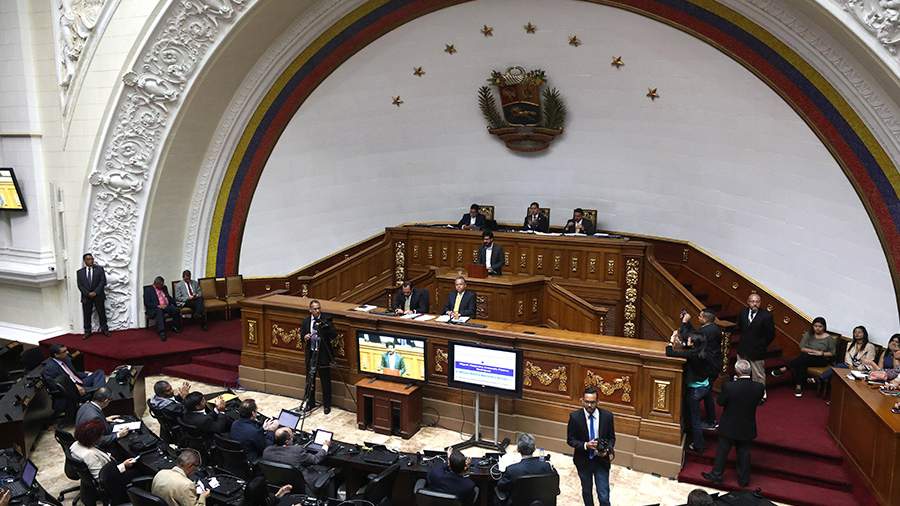Venezuela's Assembly approves anti-sanctions "Bolivar law"

Venezuela's National Assembly (parliament) has unanimously approved a law that could lead to a ban on holding public office for up to 60 years for those who support sanctions against the country. This was reported by Reuters on November 28.
"Unilateral coercive measures and other restrictive or punitive measures taken against the Bolivarian Republic of Venezuela constitute a crime against humanity in a systematic and widespread attack against the civilian population," the bill reads.
A conviction under the bill is punishable by at least 25 years in prison.
The law was passed in response to the U.S. House of Representatives' approval of the Bolivar Act, which bans all transactions and deals with the Venezuelan government. State President Nicolas Maduro called the law "garbage."
Earlier, on November 27, the U.S. Treasury Department imposed restrictions on 21 Venezuelan citizens, who are allegedly associated with the state's President Nicolas Maduro. It is specified that persons who are current or former officials of the Venezuelan government are subject to the restrictions.
Venezuelan presidential elections were held on July 28, Nicolas Maduro won. Speaking to supporters outside the presidential palace, the politician said his success was a "triumph of peace and stability" and it shows that Venezuela's electoral system is "transparent."
Russia's Foreign Ministry said Moscow welcomed the successful popular vote in Venezuela and reaffirmed the mood for further cooperation between the countries. Russian President Vladimir Putin congratulated Maduro on his victory.
Some countries refused to recognize the results of the vote in Venezuela. Thus, the U.S. authorities officially recognized the victory of the opposition candidate Gonzalez, while the governments of Argentina, Guatemala, Costa Rica, Panama, Paraguay, Peru, Dominican Republic, Uruguay and Ecuador demanded a "full review of the results."
In September, the U.S. Justice Department arrested Maduro's plane in the Dominican Republic, which was sharply condemned in Venezuela. In turn, Argentina requested an arrest warrant for Maduro from the International Criminal Court (ICC) and put him on an international wanted list. In the same month, the European Parliament called for Maduro 's arrest and for Gonzalez to be recognized as president.
Переведено сервисом «Яндекс Переводчик»
